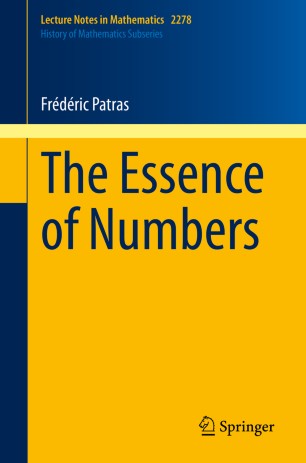

Most ebook files are in PDF format, so you can easily read them using various software such as Foxit Reader or directly on the Google Chrome browser.
Some ebook files are released by publishers in other formats such as .awz, .mobi, .epub, .fb2, etc. You may need to install specific software to read these formats on mobile/PC, such as Calibre.
Please read the tutorial at this link. https://ebooknice.com/page/post?id=faq
We offer FREE conversion to the popular formats you request; however, this may take some time. Therefore, right after payment, please email us, and we will try to provide the service as quickly as possible.
For some exceptional file formats or broken links (if any), please refrain from opening any disputes. Instead, email us first, and we will try to assist within a maximum of 6 hours.
EbookNice Team

Status:
Available5.0
21 reviewsThis book considers the manifold possible approaches, past and present, to our understanding of the natural numbers. They are treated as epistemic objects: mathematical objects that have been subject to epistemological inquiry and attention throughout their history and whose conception has evolved accordingly. Although they are the simplest and most common mathematical objects, as this book reveals, they have a very complex nature whose study illuminates subtle features of the functioning of our thought.
Using jointly history, mathematics and philosophy to grasp the essence of numbers, the reader is led through their various interpretations, presenting the ways they have been involved in major theoretical projects from Thales onward. Some pertain primarily to philosophy (as in the works of Plato, Aristotle, Kant, Wittgenstein...), others to general mathematics (Euclid's Elements, Cartesian algebraic geometry, Cantorian infinities, set theory...).
Also serving as an introduction to the works and thought of major mathematicians and philosophers, from Plato and Aristotle to Cantor, Dedekind, Frege, Husserl and Weyl, this book will be of interest to a wide variety of readers, from scholars with a general interest in the philosophy or mathematics to philosophers and mathematicians themselves.